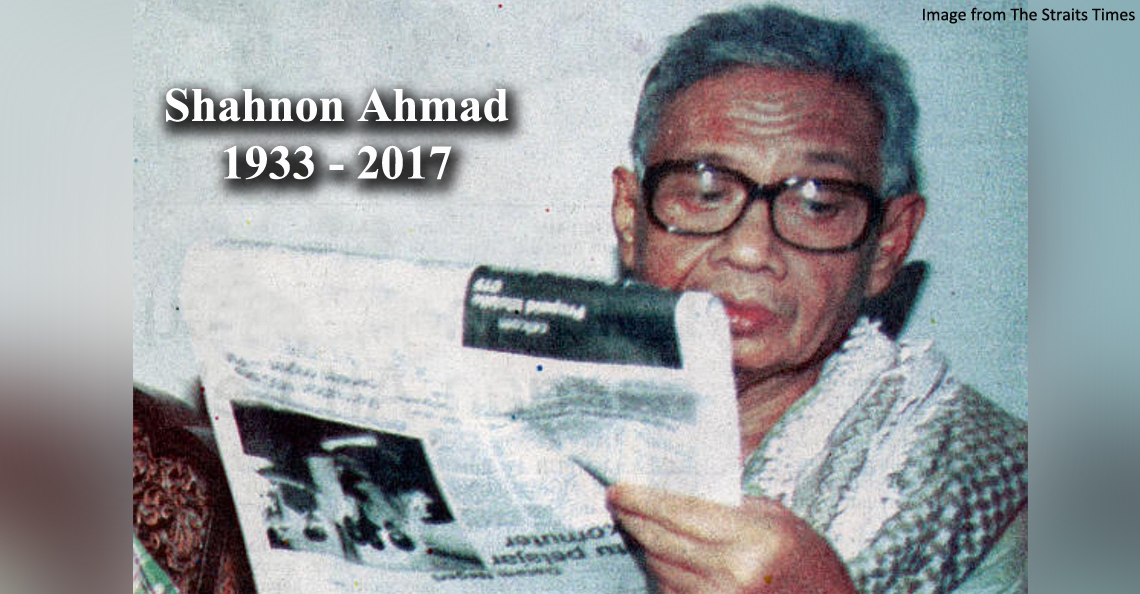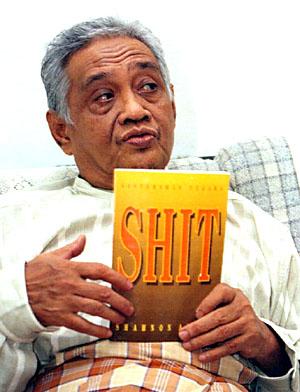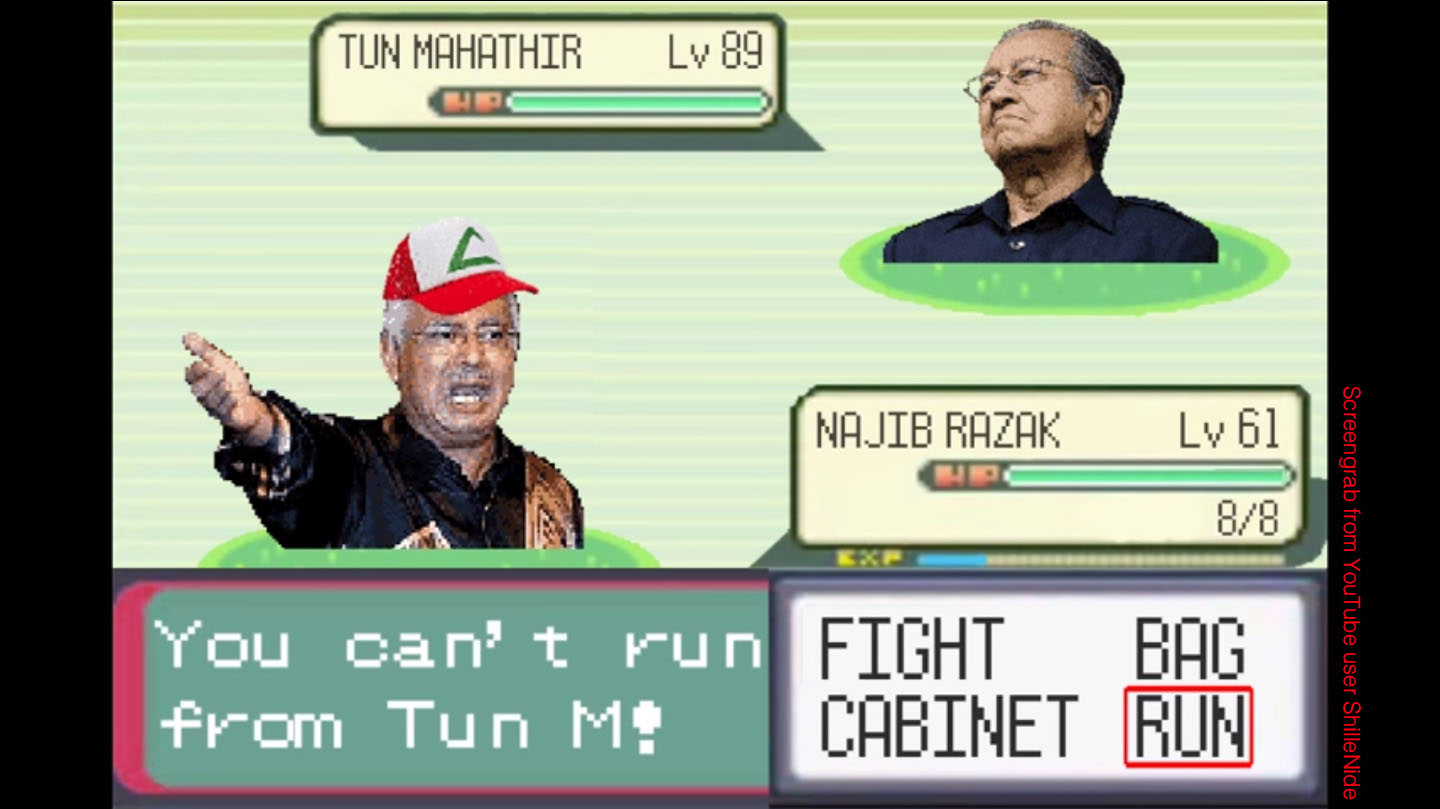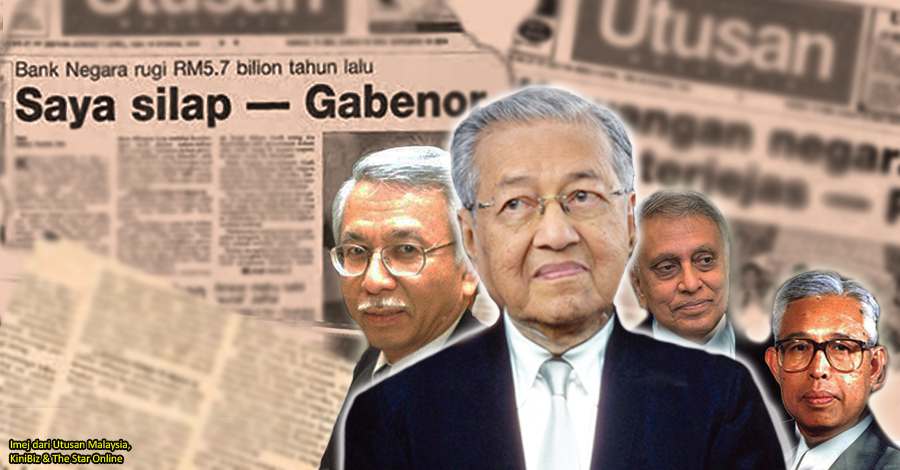From writing ‘S**t’ to being an MP… The life of one of Msia’s most legendary authors

- 1.5KShares
- Facebook1.4K
- Twitter3
- LinkedIn13
- Email27
- WhatsApp47
[This article was originally written in BM. You can read it here.]
The world of Malay literature lost a couple giants in 2017. On 9th September 2017, Dr Kassim Ahmad, a controversial writer, ex- socialist, ex- ISA detainee passed away peacefully after slipping into a coma in the hospital. Then on 26th December 2017, another national writer Prof Emeritus Datuk Dr Shahnon Ahmad passed away due to pneumonia.

Prof Emeritus who? Well, Dr Shahnon Ahmad was many things throughout his life, from being a teacher, a Bahasa Malaysia story teller who was also a national laureate and even a member of Parliament for a brief period of time. But for obvious reasons, the thing that caught our attention among all of his accomplishments is a certain novel he wrote in 1999, elegantly titled “Shit”.
But behind every work of art, there is a message, or perhaps a lesson that we can learn. So we set out to learn more about him, to understand what could have possibly made him write that novel.
He was the first in his kampung to study in an English school
Shahnon Ahmad was born on 13th January 1933, a few years before World War 2 broke out, in a rural village deep within Kedah called Kampung Banggul Derdap. His father was part postman, part James Bond, as he also worked as a British intelligence agent.
After a few years in a Malay school, he was sent to an English school in Alor Setar to study, becoming the first person to do so. Coincidentally, it was the same school where Kassim Ahmad enrolled, and they were studying in the same year. After some time working as an English teacher in Kuala Terengganu, he took the opportunity to further his studies in Australia, and he obtained a Degree in Asian studies.
Shahnon returned to Malaysia and became a Malay language and literature lecturer in Sultan Idris Teacher’s college (now known as UPSI), and later became a Professor in Universiti Sains Malaysia (USM) in 1982.
His early works were sinister and sexy, but later moved to family and religion

Shahnon started actively writing since 1965, producing short stories, essays and criticisms. The themes of his early works were actually quite sinister, talking about the exploitation of poor Malay folks by Chinese and rich Malays alike. It sometimes also tend to revolve around sexual problems/ temptations, but “on a deeper level“. But his writing career really started to take off with Rentong (1965) and Ranjau Sepanjang Jalan (1966), both were inspired by life in his hometown.
“Ranjau Sepanjang Jalan and Rentong can be regarded as the peak of Shahnon Ahmad’s career as a novelist. Ranjau Sepanjang Jalan was even translated into English by Adibah Amin, titled “No Harvest but A Thorn”.
The panel of the Sydney Morning Herald ranked the novel as one of the best novels of 1972.” – quoted from Dewan Bahasa and Pustaka
The novel “No Harvest but A Thorn” told the story of a married couple with seven children, who were farmers that depended on the padi fields inherited to them. The theme brought to light by Shahnon Ahmad’s stories was about the hardships of poverty, and it struck a cord with the readers, and was even made into a film.

“In the process of finishing up the novel, there was an issue that I could not get out of my mine, and it was poverty… the deprivation of my people, the Malay people.” – Shahnon Ahmad, quoted from UM Students’ Repository
A large part of Shahnon Ahmad’s popularity also came from his works and commentaries about Islamic literature during the 1970s. On that note, Shahnon and Kassim Admad had sort of an open philosophical rivalry on interpreting Islamic literature. And according to literature scholars, their literary sparring was so significant that it influenced the views of future works.
“Shahnon and Kassim’s debate expanded our understanding of literature and religion. It was really something to remember.” – A Wahab, theater activist, quoted from The Malaysian Insight
In the same year, he published his controversial “Shit”… and became a member of parliament
On 1982, Shahnon Ahmad was awarded the National Laureate, which is the highest literary honour any writer could ever hope to achieve in Malaysia. It was also after this that he became more involved in politics. Shahnon Ahmad was once part of al-Arqam, a controversial religious organisation, but he left before it was banned in 2006.

After leaving al-Arqam, Shahnon became a lifetime member of PAS, thereby revealing his affiliation with the party. This came as a shock to many, because he was not only a long time civil servant, but also a receiver of many awards and recognition from the government. He laid all doubts to rest when he contested in the 1999 General Election under the PAS banner. With his influence, he won the parliamentary seat of Sik, Kedah, and became a MP.
This was also the year he published “Shit“, probably his most controversial work of all time. The story follows PukiMak or PM, a powerful but ill-mannered politician that would do anything to stay in power. SOSCILI told us the entire book was basically a metaphor of a poo’s journey from the mouth to the bottom exit (much like my life).
Here is an excerpt from the novel itself
“… ahli sejarah menggelar ku sebagai PukiMak. Tentu saja panggilan itu bernada jerkahan dalam perasaan panas baran tapi aku tidak ambil kisah sangat. Dalam seruan kemarahan itulah aku terkenal dengan nama julukan Shit! Aku terkenal dengan nama julukan PukiMak! Lebih terkenal lagi dengan nama kependekan nama jilikan pm!” – quoted from Shit.
The novel emerged in the “reformation” era, after the sacking of Anwar Ibrahim, so even Helen Keller could see that Shahnon Ahmad was taking shots at Tun Dr. Mahathir. Understandably, the novel stirred much controversy, and with it, calls for the book to be banned and for Shahnon Ahmad’s titles (Datuk and National Laureate title) to be retracted.
“The novel was burnt, sold illegally, and even used to scam interested buyers of their money. Some of my friends became enemies. The novel turned seemingly honest friends into cheaters, and we remained enemies since then. Hundreds of thousands of ringgit worth of debts were unpaid.” – Shahnon Ahmad, quoted and translated from Setitis Embun Semarak Api

But it seems that Shahnon Ahmad got to keep his titles with him until his last breath, and he even stayed as MP for a full term (which is 5 years). Reflecting on his experience working as a representative, Shahnon Ahmad expressed his disappointment over the insincerity of politics. Based on his own words, he has spent more time crying than laughing, and has endure more sorrow than happiness.
“From this experience, I have learned to spot true leadership from the phony ones.
… There are times when my heart fills up with regret. How did get myself tangled in this kind of contemptible politics? Is it only through the web of politics can this lesson be learned?” – Shannon Ahmad, quoted and translated from Perjalanan Ku Sejauh Ini.
In his final years, he was crippled by the burden of disease and politics

From the year 2000 to 2004, Shahnon himself admits that he was going through a period of sorrow and desolation. Due to the the burden of politics and a disease, Shahnon did not write as much as he would like to. Shahnon has a disease called Myasthenia gravis (MG), which is a disease that affects the nerves and muscles, leading to muscle weakness throughout the body.
“MG has made me weak to the point where I cannot go anywhere unless I am assisted; even the simple act of opening my eyes, and moving my lips, and even raising my brow is proving to be a very difficult task.” – Shahnon Ahmad, quoted and translated from Setitis Embun Semarak Api.
Thought the laureate has left us, he will still be remembered as an artist who used his talents to call out the leaders and inconsistent politics. The late Tun Abdul Razak once dubbed Shahnon the Malay Victor Hugo, because of his sensitivity to the plight and perils of the Malay farmers. His rival Kassim Ahmad on the other hand, had this to say about him: Shahnon is a writer. He is not a politician.
“Writing is not a play of words… It should be about questioning the justice and inequality of society… it should question the peace and violence, the bribes and frauds within our society, the lies and corruption of our leaders,
… and if need be, writing should be about exposing all the deceits without fear, so that the people see all the lies that they’ve been fed.” – Shahnon Ahmad, quoted and translated from Perjalanan Ku Sejauh Ini
- 1.5KShares
- Facebook1.4K
- Twitter3
- LinkedIn13
- Email27
- WhatsApp47



